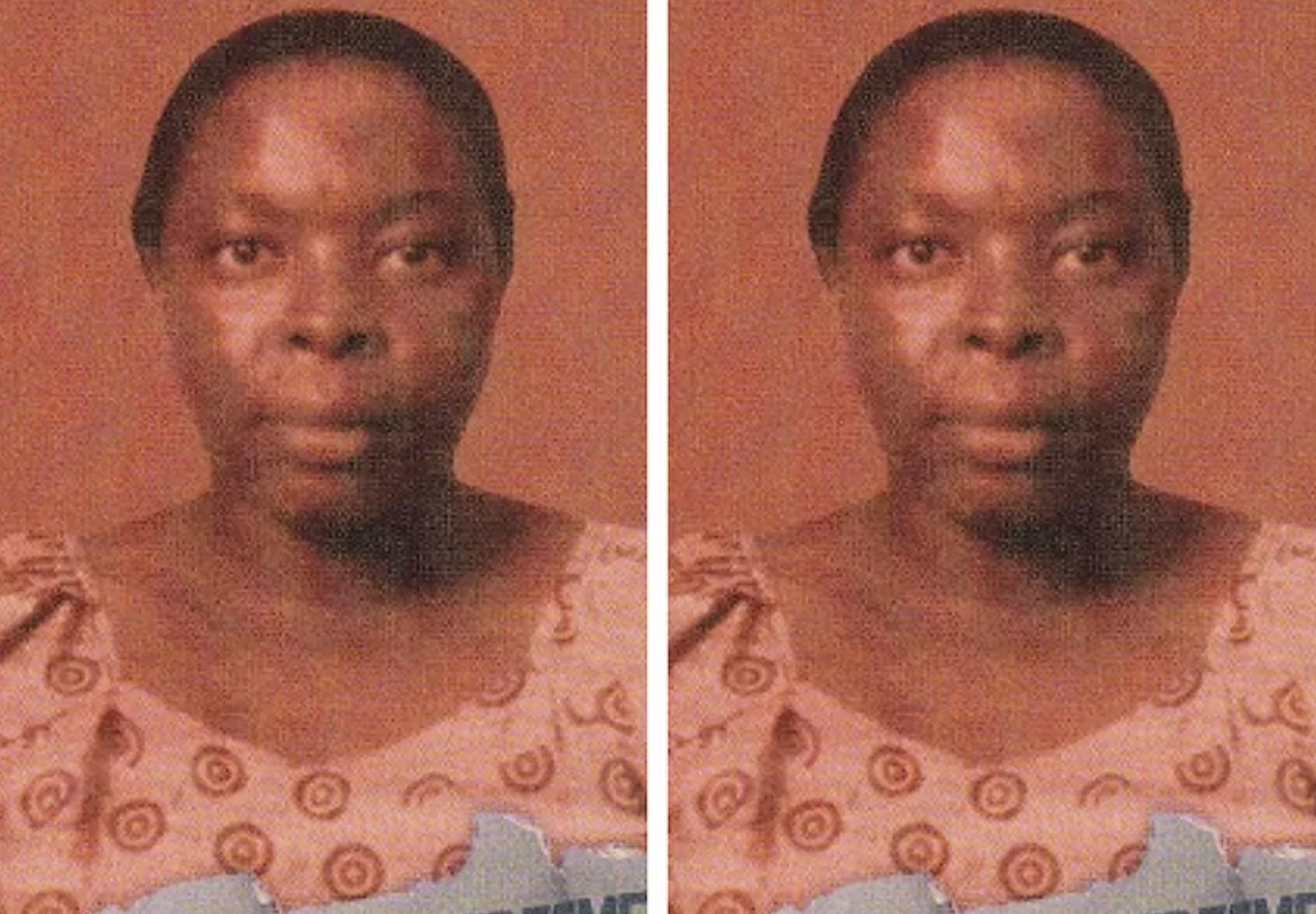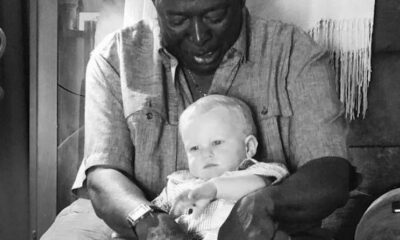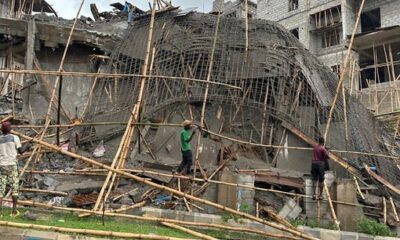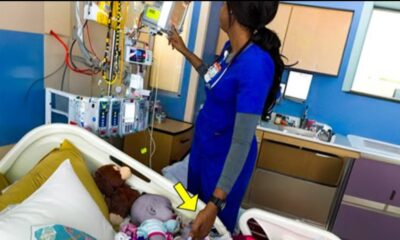Christiana Oluwatoyin Oluwasesin was happy and lively when she arrived at the Government Secondary School of Gandu, in the northern Nigerian state of Gombe on the 21st of March, 2007, where she teaches government.
The married mother of two had already served state authorities notice of her resignation to join her husband, Femi, in their hometown of Abeokuta where he had taken up a job as a laboratory technician at a hospital…Click Here To Continue Reading>> …Click Here To Continue Reading>>
She was glad that she would soon be with her husband after the final day of exams that fateful day, but her joy on her last day at the school would be short-lived.
Students, largely Muslims between the ages of 12 and 14, alongside outside Islamic extremists, murdered Oluwasesin that day after accusing her of desecrating a copy of the Quran.
The mob stoned, stripped, beat and stabbed her to death, and her body was later burned beyond recognition, according to reports.
The incident, which remains unsolved to date, reignited discussions about the freedom of religion and the sanctity of human life in Nigeria.
On that March 21, Oluwasesin was supervising a class writing a final examination on Islamic Religious Knowledge, and to prevent cheating and other examination malpractices, she collected books, papers, and bags before the exam began in the all-female class and dropped them in front of the class, Aluke Musa Yila, a fellow teacher at the school, told Compass, even though other local reports said she tossed the materials outside the classroom.
“Usually such items are returned to every student as each returns her answer script,” said Yila, who said he witnessed the gruesome murder of Oluwasesin. “Soon after the bags collected by Oluwasesin were dropped in front of the class, one of the girls in the class began to cry.
She told her colleagues that she had a copy of the Quran in her bag, that Oluwasesin touched the bag, and that by doing so she had desecrated the Quran since she was a Christian.”
Right after, students in the class began shouting “Allahu Akbar (God is great).”
“It was at this point that I was attracted to the riotous scene in that class, and I then rushed there,” said Yila. “How could a teacher know that that there was a copy of the Quran in a student’s bag if this was not pointed out to her?”

Yila alerted staff members in the school who rushed to the scene to try and bring calm. In the process, Yila was able to take Oluwasesin out of the class to the office of the principal.
“The principal left me and Oluwasesin in his office and also went there to calm down the Muslim students. Knowing that the students may soon come to this office, I pushed Oluwasesin into the bathroom in this office and then locked up the office,” he said.
He then went back to the scene and was shocked to find that outside Muslim extremists had joined the chaos, destroying school property and demanding that Oluwasesin be given to them to be stoned to death.
The mob believed that she had torn up a copy of the Quran, a book considered holy to over a billion people, and it’s a sin.
“When we could not give in by releasing Oluwasesin to them, they started stoning us,” Yila said. READ FULL STORY HERE>>>CLICK HERE TO CONTINUE READING>>>
In the midst of the violence, school officials and the police were unable to get access to Oluwasesin to save her as students hit them with stones and forced them to retreat.
“While we were thinking of ways to take Oluwasesin out of the school, the Muslims broke into the principal’s office and dragged her out,” Yila said.
“The principal rushed there to save her as they clubbed her with an iron on the head and blood was gushing out from the wounded side of the head. He was pleading that they should not kill her, but they were insisting that she must be killed.”
“The principal succeeded in getting Christiana Oluwasesin up to the school gate,” he said. “There was a house near the gate, and he dragged her into the house, but the rioting Muslims went into the house and dragged her out again. This time, they clubbed her to death, brought old mats and placed dirt on her corpse, and then burned the body.”
The students went ahead to set fire to classrooms, the library, Oluwasesin’s car and the motorcycle of Yila, who had then fled the scene.
Fire personnel at the time said they could not get to the area as all roads leading to the school which had a student population of about 4,000, with about 10 percent being Christian, were blocked.
After the incident, 16 suspects were arrested but were released without charge, a decision that angered many rights organizations, including the Christian community in Nigeria.
Oluwasesin’s husband Femi and the children headed to court, demanding that the state government accept liability and compensate the family for the death of his wife. But the Federal High Court, Gombe, refused to handle the case, on grounds that it did not have adequate security to maintain law and order during the trial.
With the help of a non-governmental organization, Femi dragged the state government to the Federal High Court, Yola, in neighboring Adamawa State, and as of 2010, the suit was still pending.

“[My children] are a constant reminder of my dear wife and how we both desire to raise them in the ways of the Lord. I have no option but to forgive those who have taken my wife’s life away even though justice has not yet prevailed,” Femi was quoted to have said.
Femi met and married Christiana Oluwasesin on August 28, 2003. The two had gone to Gombe on a one-year mandatory National Youth Service Scheme of the Nigerian government.
After the service year, they were employed by the Gombe state government; his wife got a job as a teacher and he became a laboratory technician at a local hospital.
Apart from learning to live with grief following the loss of his wife, Femi began receiving death threats from anonymous callers in 2010, ordering him to withdraw the case he instituted against the state government.
In all of these, what baffles many is the fact that throughout the chaos that killed Christiana Oluwasesin, the copy of the Quran which was said to have been desecrated was never seen.
“Whether the Quran was in the bag of that student, nobody knows,” Yila said.




















